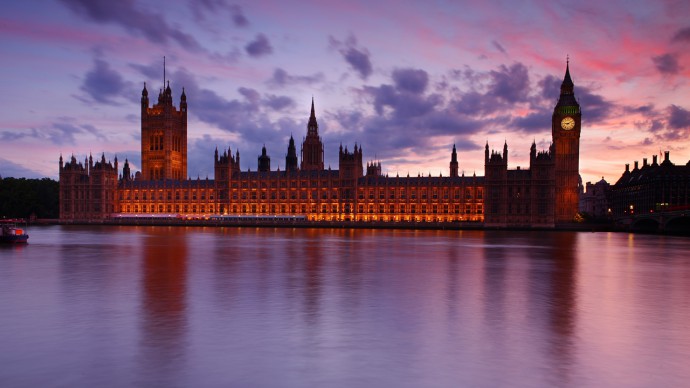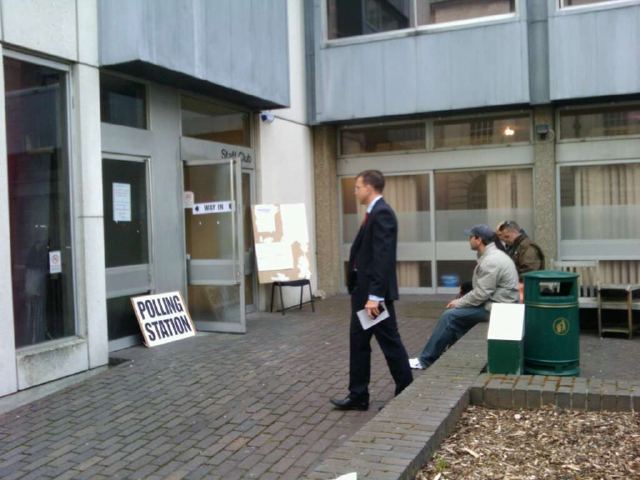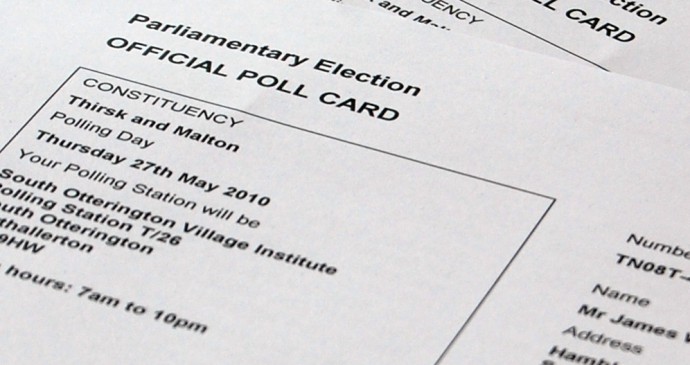James is wrong about giving 16- and 17-year-olds the vote
My friend James O’Malley argues on his blog that 16- and 17-year-olds should be given the vote as it will help to tackle the seemingly undue attention given to old people by political parties:
By increasing the potential pool of voters at the bottom, it affects the potential electoral mathematics that the parties have to do to maximise their votes. If there are more young people who can vote, it tips the scales back towards the young. Pensioners might be reliable voters, but if there were an extra 1.6 million (ish) young people on the electoral register might be a greater motive for refocusing policies and priorities.
I’m undecided on whether 16- and 17-year olds should be allowed to vote―I see good arguments on both sides―but I think that James’s specific argument is wrong for reasons mathematic and democratic.

First, the maths. For the purposes of these back-of-the-envelope calculations, I’m using ONS projections for England (as that’s what I have at hand), defining the “youth” vote as 29-and-under,1 and defining the “grey” vote as sixty-and-over.
Currently, the “youth” vote accounts for roughly 20% of eligible voters, versus roughly 29% for the “grey vote”. Giving the vote to 16- and 17-year olds would move these percentages to about 22% and 29%: that is to say, it wouldn’t make much difference. And the difference is lessened further by the fact that most people agree that the “youth” vote is less likely to turn out than the “grey” vote.
But, of course, the real imbalance in the “youth” versus “grey” votes isn’t in 2015. The population is ageing: the scale of the imbalance today is nothing to what the scale of the imbalance will be in the future.
If we fast-forward a couple of decades to the 2035 election, ONS projections suggest that the “youth” vote (as currently defined) would make up roughly 18% of the electorate, versus 37% of the electorate being “grey” voters. Giving 16- and 17- year-olds the vote rebalances this a titchy bit (to 20% and 36% respectively), but this difference is really so little as to be meaningless―the imbalance remains far greater than it is today.

My second problem with James’s argument is democratic. He reckons that the makeup of the electorate needs to be changed to better ‘balance’ it in age terms, because generational disputes cause problems in our country. As an example:
The old, who own property want the value of their homes to continue to increase, whilst it would be better for the young people who Ed Miliband calls “generation rent” if property prices were to fall, so that buying a house can become even a remote possibility.
But, surely, to suggest that’s a problem is profoundly undemocratic! We have decided that the best way to run our nation is by the majority electing representatives who they think will best serve their interests. The majority of the population is ageing. We shouldn’t go around thinking of ways to “fix” the result to better reflect youth interests because the youth is in the minority.
If we stick with our current form of representational democracy, then, for the foreseeable future, our politics will continue to be determined by the “grey” vote as it is the “grey” vote which makes up the largest part of the electorate. The different electoral turnouts between the generations certainly exacerbate the problem, but they are not the source of it.

Having said all of that, there is a problem here. Actually, it probably is unreasonable for the electorate to become so imbalanced: not generationally imbalanced, but gratuitously imbalanced between net financial contributors to the state and net financial users of state services. It’s hard to see how a state can function when politicians essentially only have to appeal to those who use the state’s services (especially the elderly), and have to appeal less to those who (by and large) pay for it (largely the working aged). It becomes perfectly logical for politicians to whack up tax rates or borrow with little regard for the future.
Of course, this probably won’t actually happen. It’s more likely that the “grey” vote will be effectively capped at a certain size as people work longer, as neither the state nor individuals can afford to pay for pensions which increasingly approach or exceed the length of an individual’s working life. And, of course, outrageous levels of tax and spend would provide a good incentive to improve low turnout in the younger section of the electorate, which would provide a degree of rebalance in and of itself.

On the other hand… things could get worse more quickly. We’re seeing national and international narrative opinion increasingly extending the length of childhood. We’ve already seen in the UK a major shift in legislation pushing the end of childhood (in terms of, for example, school leaving and consumption of cigarettes) from 16 to 18. There is increasing scientific evidence that key elements of development, particularly emotional development, continue until the early 20s. UNESCO considers our period of “youth” to continue until 25. The African Youth Charter considers it to continue until 35. In this context, it’s not inconceivable that a future government might choose to increase the voting age, not decrease it.
❧
To summarise: give 16- and 17-year-olds the vote if you want. But do it for good reasons, not because you want to “fix” the outcome of elections in a way that will matter little and matter for a short time. And go and read James’s post, too.
- Woe is me, having just exited my own definition of “young”. ↩
As a bit of an experiment, you can access an audio version of this post here.
The images in this post are all from Flickr, and are used under their Creative Commons licence. In order of appearance, they were uploaded by Eric Hossinger, AdamKR, The Fixed Factor, and James West.
This post was filed under: Politics, James O'Malley.